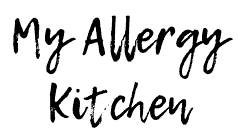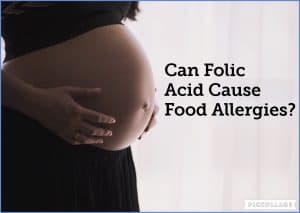New research has found a possible link between folic acid exposure in the womb and food allergies in early childhood. Researchers presented these new findings at the American Academy of Allergy Asthma and Immunology (AAAAAI)/World Allergy Organisation (WAO) Joint Congress in March 2018.
Researchers have found that babies who were exposed to high levels of folic acid in the womb had higher rates of food allergies. However, we don't yet know whether this is due to pregnant women taking supplements, a genetic difference, or both.
Folic Acid vs Folate
Folic acid, or folate, is also known as Vitamin B9. Folate is the natural form. This is the substance that your body uses. You can get it from foods such as:
- leafy green vegetables (such as spinach, Brussels sprouts, broccoli, kale, cabbage and cauliflower),
- citrus fruits (including orange juice),
- whole grain foods,
- lentils,
- beans,
- yeast extract,
- poultry, pork and shellfish.
- Liver is also high in folate, but is not safe to eat during pregnancy as it contains high levels of Vitamin A.
Folic acid is synthetic and is the type found in most supplements and fortified foods (e.g. some breakfast cereals).
Folate in Pregnancy
Vitamin B9 is really important for the normal development of a healthy baby, as it can reduce the chances of defects in the brain and spinal cord, such as spina bifida. Most people get enough folate from their normal diet. However, during pregnancy, it can be difficult to get a enough from diet alone, because you need much more than usual. In the UK, the government recommends that pregnant women should take supplements while they are trying to conceive and for at least the first 12 weeks of pregnancy.
Choosing a Supplement
Most pregnancy supplements contain folic acid. The body has to convert this into a form of folate that it can use using an enzyme called MTHFR. If there is more folic acid than your body can convert to folate, what is left over is called 'unmetabolised folic acid'. Scientists think this may be what causes the higher rate of food allergies. Some people have a faulty MTHFR gene, and can't convert as much folic acid into folate as other people. This may be why only some people are affected and not others.
Some supplements are available that contain folate in its already-converted form. You will see this in the ingredients as "5-methyltetrahydrofolate” or “5-MTHF” on the label. Taking this type of supplement avoids the buildup of unmetabolised folic acid, as the body can use it straight away, without breaking it down.
During pregnancy, make sure you have a high enough intake of folate by eating plenty of foods rich in folate as well as taking a supplement. If you are concerned about the risk of food allergies, for example if you have a family history of allergies, eczema and asthma, you may prefer to look for a supplement that contains a form of folate. If you are unsure, speak to your midwife or doctor for further advice.
For more on the latest research into preventing food allergy in babies, check out my book, The Busy Parents Guide to Food Allergies.
References



[…] into your diet. Among its many health benefits, it's a great source of folate, the natural form of folic acid, as well as Vitamin K which is important for bone […]